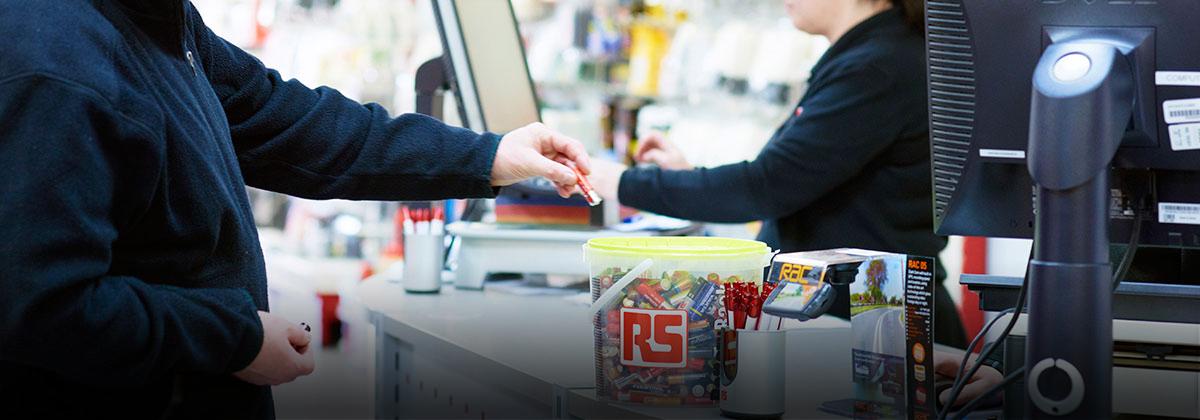Why RS is making sustainability a key focus both within its own organisation and in the products it offers customers
“Sustainability is integral to what we do.” This is the view of RS Group Vice President of Global Health, Safety & Environment, John Barnacle-Bowd. “There are two sides to sustainability for RS – the products that we sell and the things we do as a company – but in both cases we are committed to a long-term sustainability strategy.”
For RS, this has meant significant efforts over the past five years to ‘walk the walk’ when it comes to issues such as CO2 emissions, recycling and energy consumption. Barnacle-Bowd, who joined the business in 2016, is now heading up efforts to further improve sustainability over the next five years.
“We have set ourselves goals for this year and the next four that we are committed to achieving,” says Barnacle-Bowd. “On a micro level, this involves initiatives such as cutting the CO2 emissions from our company vehicles and reducing the amount of energy we use in our buildings.
“The big picture is that we want to cut these emissions by 15% over the next five years – and this is on top of work we’ve already done during the past five years,” he adds. “Our CO2 levels have dropped from around 16,500 tonnes per year in 2011 to around 10,000 in 2017 and our electrical usage has gone from just under 25 million kWh in 2011 to around 18 million kWh in 2017.”
"Make sustainability part of your culture so that people don’t even think about their actions as being environmentally friendly, and simply do them as a matter of course "John Barnacle-Bowd, Vice President of Global Health, Safety and Environment, RS Group
Achieving these results and continuing to improve on them in coming years is no simple matter, but Barnacle-Bowd believes the key to doing so is changing the mindset of all employees, no matter what their role within the organisation. “The key is to making sustainability part of your culture as a business – part of everything you do – so that people don’t even think about their actions as being environmentally friendly, and simply do them as a matter of course.
“There is obviously a challenge around truly embedding a sustainability culture in a company because everyone has a day job and needs to deliver results, but that’s why sustainability is a long-term strategy and a culture shift doesn’t happen overnight,” he adds. “At RS, I feel that we’re a good way along the right road, but there’s always room for further improvement.”
Part of that improvement, explains Barnacle-Bowd, applies to how RS supports customers with their sustainability. “We have ISO 14001 certification, which means we have a framework that the organisation can follow to effectively run an environmental management system,” he says. “The things that we sell come from sustainable sources, which helps our customers who are also ISO 14001-certified and want to use sustainable and ethical products. When our customers are externally audited on their environmental compliance, a crucial element will be who their suppliers are and whether they meet ISO 14001 standards.
“One of the key things about ISO 14001 is the product lifecycle – looking at the sustainability of the product ‘from the cradle to the grave’,” he adds. “That’s something that we are working on now because that’s what customers are looking for from suppliers such as RS.”
RS also provides customers with options for WEEE (Waste Electrical and Electronic Equipment) recovery – they can send items by post, deposit them at an RS Local branch or arrange for a collection from their site. In addition to this, RS support customers in safely disposing of batteries.
Another major factor in hitting sustainability targets, according to Barnacle-Bowd, is reducing the miles travelled by products and fuel used to transport them. “We want to be making improvements in every action we take, every delivery we make, and look at the sustainability of every product we provide customers with, so that we’re setting really high standards,” he explains. “Our digital systems give us the ability to collect and analyse big data, which lets us see at a glance which products are being shipped where, how much they weighed, and then we can identify potential efficiencies in the process.
"Making these changes is good for the environment, but it also saves us money as a business, which will be reflected in prices. It means that sustainability is a win-win "John Barnacle-Bowd, Vice President of Global Health, Safety and Environment, RS Group
“This helps us support customers from having a more effective supply chain that minimises the number of miles products travel before they reach a customer to services such as consolidated deliveries, which allows customers to buy multiple items during the day but have them delivered in one shipment,” he says. “The bottom line is that making these changes is good for the environment, but it also saves us money as a business, which will be reflected in the prices we can offer customers. It means that sustainability is a win-win.”





